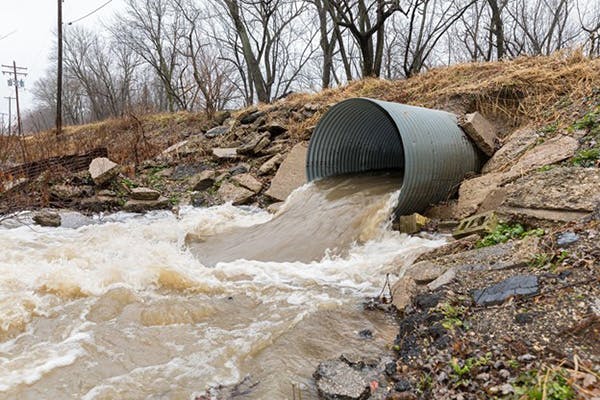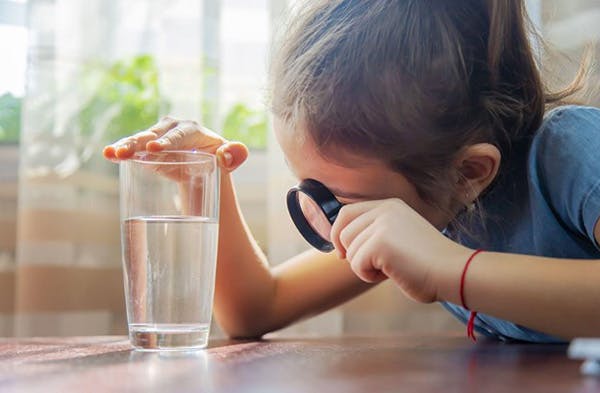December 2022
Your Total Guide to Houston Water Quality
In-home expert installation available
Enter your zip code to see if we're in your area
They say everything is bigger in Texas, and the city of Houston is no exception. It’s the most populous city in Texas and ranks fourth in the U.S. Houston is an industrial hub that’s home to almost one-third of manufacturers in Texas, and an impressive 44 out of 113 publicly traded oil and gas companies in the country.
If you’re one of the 2.37 million people who live in Houston, you might have questions about Houston’s drinking water. This guide on Houston water quality will help you understand where your water comes from, what’s in it, and whether it’s safe to drink.

Where Does Houston’s Drinking Water Come From?
Houston tap water comes from multiple surface water and groundwater systems, including several rivers and river-fed lakes. Most of the water supply comes from Lake Livingston, Lake Conroe, and Lake Houston. These lakes are fed by the Trinity River and the San Jacinto River.
The Houston Public Works oversees Houston’s water operations, as well as several other city functions. Depending on where in Houston you call home, you could get your water from one of six public water systems, including:
- Main System
- Kingwood
- Willow Chase
- District 73
- District 82
- Belleau Wood
Each of these public water systems starts with water fed from different sources, which means the concentrations of any water contaminants that may be in your water can be different depending on where in Houston you call home.
Between the six water systems, Houston’s water sources include three surface water purification plants and 55 groundwater plants. Most of these feed the Main System.
How Is Houston Water Quality?
The City of Houston is a member of the American Water Works Association (AWWA). It’s also part of AWWA’s Partnership for Safe Water program, meaning they volunteer to go above and beyond minimum regulatory standards for water quality being delivered to customers.
Houston’s record for keeping the water clean isn’t spotless, though.
In 2019, Houston was fined by the Environmental Protection Agency (EPA) and the Texas Commission on Environmental Quality (TCEQ) for repeatedly exceeding the limits of raw sewage being discharged into fresh water bodies.
Is the Tap Water in Houston Safe To Drink?
Generally, tap water in Houston is considered safe to drink by EPA standards. It should be noted, though, that the EPA doesn’t regulate all possible contaminants. Some common contaminants, like PFAS and PFOS, aren’t mandatory to test for. Houston water quality reports do not display these results if they do test for them.
Is Houston Water Hard or Soft?
Like most water in the U.S., Houston is considered to have hard water.
If your water comes from groundwater, like most water in the United States, it’s likely going to be hard water. Groundwater filters naturally through rocks made of minerals like calcium and magnesium. Over time these rocks erode and get absorbed into the water. These dissolved mineral solids are what make the water hard. This is what you see building up on your showerhead or spotting your stemware if you have hard water.
Houston is known to have hard water, as much of its water comes from these groundwater sources. In fact, the greater Houston area relies on 55 groundwater treatment plants to supply over 2 million customers with water.
Hard water isn’t generally damaging to health and can even add healthy minerals to your diet. Hard water is a bit of a nuisance, though. It can stress your water-based appliances, clog your pipes and faucets, and create soap scum, among other things.
Is Houston Water Contaminated?
Yes, almost all water has contaminants, including bottled water.
Many contaminants are naturally occurring, like the hard water minerals, calcium, and magnesium we mentioned earlier. These contaminants come from the source water and continue on to you unless you remove them with water softeners or filters.
However, some naturally occurring contaminants aren’t just a nuisance.
Arsenic can also end up in your water from rock erosion. Arsenic can cause severe health problems, so water utilities try to filter arsenic out before it gets to your tap but don’t always remove it all. Houston Public Works has warned about levels of arsenic in Houston’s tap water in their 2021 Drinking Water Quality Report, where they had this to say:
“Some of Houston’s drinking water contains low levels of arsenic, which is below state and federal action levels. EPA's standard balances arsenic's possible health effects against the costs of removing it from drinking water. EPA continues to research the health effects of low levels of arsenic, which is a mineral known to cause cancer in humans at high concentrations and is linked to other health effects such as skin damage and circulatory problems.”
The Environmental Working Group (EWG), which only measures health risks when making their recommendations for maximum levels of substances in water, says the levels of arsenic in Houston's water supply are 528 times higher than their recommended levels for good health.
Are All Contaminants in Houston Water Naturally Occurring?
Many contaminants in your water aren’t naturally occurring.
The water that comes through your pipes travels first from groundwater, rivers, and lakes before it gets to water treatment plants. These bodies of water are susceptible to pollution from agriculture, urban runoff, or industry, to name a few.
Some examples of manufactured contaminants that affect Houston water quality are:
- Chromium used in industry
- Pesticides used in agriculture and urban runoff
- Herbicides like atrazine from agriculture and urban runoff
- Fertilizer chemicals like nitrates from agriculture and urban runoff
- Xylenes are petroleum-based solvents with many industrial uses
- Radium is a radioactive element used in oil and gas production
Some can even be added to your water in the water treatment plant. These could include fluoride added for dental health and chlorine for water treatment.
There are also disinfection byproducts like haloacetic acids (HAA5), dichloroacetic acid, trichloroacetic acid, and total trihalomethanes (TTHMS).
How Contaminated Is Houston Water?
There are many contaminants affecting Houston’s water quality. Some of them can be considered more harmful than others in different concentrations. The concentration of most contaminants is measured in parts per million (ppm), parts per billion (ppb), or even parts per trillion (ppt). Radium — a radioactive material — is measured in picoCuries per liter or pCi/L. A Curie is a measure of the intensity of a radioactive substance, found by measuring its decay. A picoCurie is 1 trillionth of a Curie.
So let’s look at some of these contaminants to understand how they affect us in their current concentrations.
Arsenic
According to the World Health Organization, arsenic can cause cancer and skin lesions in high enough concentrations. It’s also known to cause cardiovascular disease and diabetes.
EPA maximum allowance: 10 ppb
EWG recommended maximum: 0.004 ppb
Houston’s max detected levels: 7.4 ppb
Xylenes
According to the CDC, xylenes can cause headaches, dizziness, loss of muscle coordination, nausea, confusion, and even death in high enough concentrations.
EPA maximum allowance: 10,000 ppb
EWG recommended maximum: 1,800 ppb
Houston’s max detected levels: 44 ppb
Radium
According to the CDC, radium can cause anemia, cataracts, fractured teeth, cancer, and death in high enough concentrations. The concentrations required for any of these effects are currently unknown.
EPA maximum allowance: 5 pCi/L
EWG recommended maximum: .05 pCi/L
Houston’s max detected levels: 3.8 pCi/L
Barium
Barium can increase the risk of cardiovascular disease and hypertension. According to the CDC, some studies have shown vomiting, abdominal cramps, diarrhea, difficulties in breathing, increased or decreased blood pressure, numbness around the face, and muscle weakness as side effects of ingesting barium. Others have shown little to no effect at all.
EPA maximum allowance: 2,000 ppb
EWG recommended maximum: 700 ppb
Houston’s max detected levels: 350 ppb
Lead
Lead is different from these others. Lead in water usually comes from the plumbing system in your house. While the EPA does have a maximum allowed amount of lead, they also say there is no safe level of lead in a child’s blood.
The EPA states, “In children, low levels of exposure have been linked to damage to the central and peripheral nervous system, learning disabilities, shorter stature, impaired hearing, and impaired formation and function of blood cells.”
Houston Public Works recommends water testing to see if you have lead in your water. If your water tests positive for lead, you should flush your tap by running it for one to two minutes before using your water for cooking or drinking.
If your water has lead, under-sink filtration devices that are designed to remove lead are preferable over whole-home filtration. A whole home filtration system filters out everything from entering your home’s plumbing, but if the lead is in your plumbing, you need a filtration system that acts as a barrier between your plumbing and your tap.
HomeWater’s 2-stage and 4-stage under-sink filtration systems remove lead from water.
Why Do Some People Say Houston Water Smell Like Fish?
A lot of Houston’s water comes from lakes that are susceptible to algae blooms. These blooms can change the taste and odor of the water to be what some describe as an earthy, minerally, or even fishy odor and taste.
In some circumstances when water supplies might be disturbed, like in the case of a large storm, more disinfectant may be added to the water to ensure safety. According to the Houston Public Works, this doesn’t affect Houston water quality or safety, but it can give it a fishy smell.
How Do I Know I’m Getting the Best Water Quality in My Home?
A whole lot of people call this Texas town home. That’s why Houston water quality is so important.
HomeWater filtration systems can give you peace of mind that every refreshing glass your family reaches for will be great tasting and safe. No more strange fishy odors coming out of your tap. If you have concerns about lead, our under-the-counter filtration systems will put a barrier between you and your pipes.
If you just want the best quality water coming out of all your faucets and appliances, our affordable, North American-made whole home systems might be right for you.


